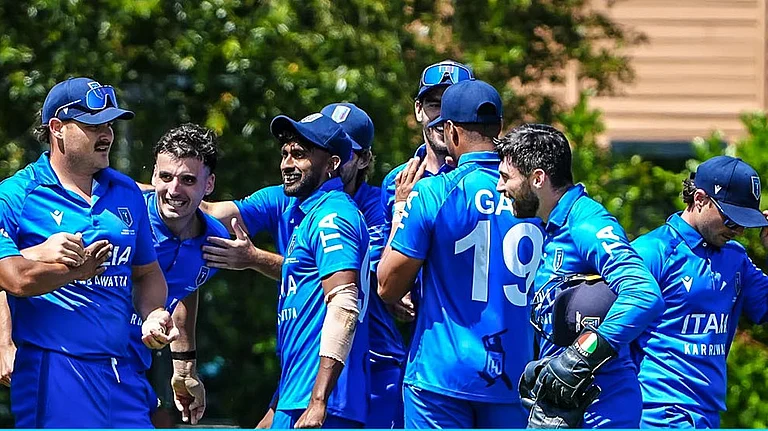THE killing of Sander Thoenes, the 30-year- old Dutch correspondent of the Financial Times , while he was covering the riots and massacres in East Timor, has suddenly made a conflict from which I was till now farremoved ,intensely personal. Sander was my daughters closest and oldest friend. They had met at college in the US, more than ten years ago, and remained in constant touch ever after. Sander had visited India to see her, and always talked of coming back. We met for the last time in Jakarta last December, where he proudly showed me his voluminous file of the dispatches he had sent from Jakart a . In my attempts to understand the complex interaction of politics and economics in Indonesias precipitous collapse he became, in a reversal of roles, my guide and mentor.
Behind a shy, somewhat reserved exterior, Sander was one of the most passionately idealistic young men Ive ever met. He exemplified a type of young European with whom we in India are not familiar, and whose existence we often do not wish to acknowledge. Born in the secure environment of an affluent but caring social democracy, Sander was filled with an intense desire to reach out to the rest of the world and share some of the intangible wealth of compassion he possessed. The path he chose was through journalism. Having studied Russian in college, he went to Moscow after graduation and took up a job in the then new English language paper, Moscow News . His dispatches on the last days of pere s t roika, and his eye-witness account of Yeltsin s speech of defiance from the top of a tank during the abortive 91 putsch, which he happened to see while out on a late night walk, led to his being hired by the Financial Time s. After posting him in Kazakhstan to cover the Central Asian states, the FT sent him to Indonesia. He arrived in Jakarta just in time for the economic collapse, and the tragic aftermath that followed, which now has taken his life as well.
Sander was killed in a random shooting by a hate-filled, semi-literate mercenary thug. It was nothing personal. White soldiers had invaded East Timor in the guise of peace-keepers, and his was a white face. His death has heightened my unease about the shape of the post-cold war global order that was simmering ever since NATOs bombing of Kosovo. Through both these human tragedies runs a common thread: a casual disregard for the power of nationalism, and the need to respect the territorial integrity of complex multi-ethnic states. Last March the NATO countries thought that a week of bombing by no more than 40 aircraft would be sufficient to bring President Slobodan Milosevic to his senses and make him withdraw Serb forces from Kosovo. By the time NATO realised how severely it had underestimated the strength of Serb nationalism, it was committed willy nilly to upholding NATOs credibility no matter what the cost. The result was a human tragedy of epic proportions in Kosovo, and the virtual destruction of the Yugoslav economy.
The seeds of the tragedy unfolding in East Timor also lie in the underestimation of Indonesian nationalism. A quarter of a century ago, at the height of the cold war, Indonesia had invaded East Timor with the tacit blessing of the West. But when the cold war ended a new morality began to prevail. When Indonesias economy collapsed, and was followed in May last year by the ouster of President Suharto, the I M F and the UN made it a pre-condition for aid that Indonesia not only put an end to the crony capitalism which the former held responsible for Indonesias woes, but do so by promoting genuine democracy in the country. Part of the package was the ending of the special role allotted to the a rmy in Suhartos constitution as the defender of the Indonesian state, and the holding of a referendum in East Timor on whether its people wanted continued association with Indonesia or independence.
WHEN Suhartos beleaguered successor, President B.J. Habibie, agreed to the latter, Indonesia was still in the calm waters created by two decades of rapid growth and Suhartos iron-fisted rule. Thus he chose to disregard the armys vehement opposition to the inclusion of independence as an option for East Timor. But in the months that followed, as the hold of the government visibly weakened, election fever swept the country, squabbles broke out over the amendment of the Constitution, and separatist violence surfaced in other parts of Indonesia, the fear grew within the Indonesian elite that an adverse verdict in East Timor could have a domino effect that might unravel the Indonesian state altogether.
The brutal, seemingly senseless violence unleashed by Indonesian soldiers disguised as anti-independence militias, upon a completely unarmed and helpless population, was less to deter an adverse vote in East Timor than to discourage separatism elsewhere. Such tactics have seldom succeeded in the past. It remains to be seen whether theyll succeed now. If not, then Indonesia will enter a hell of unending violence. There is a profound moral to be drawn here : the way to hell is often paved with good intentions. No one can seriously question the virtues of democracy. But every country has to find its own way there. If democracy and individual rights are pushed without any concern for the stability of the state thats sought to be democratised, then the end product might well be a failed state. Thats the direction in which both Serbia and Indonesia could be heading.
Sander Thoenes is an innocent victim of good intentions that have gone grievously wrong. If his death shocks the world into caution and a modicum of humility; if all-powerful decision-makers learn that it is sometimes better to do nothing rather than start a chain reaction that they cannot control; then he will not have died entirely in vain.























